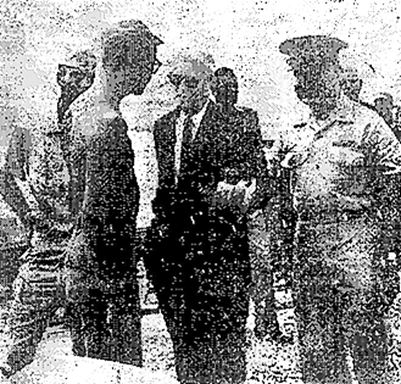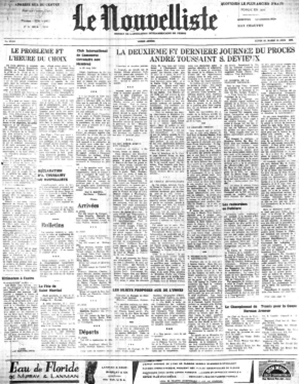 "The United States and Duvalier" by Stephen G. Rabe, Ph.D.
"The United States and Duvalier" by Stephen G. Rabe, Ph.D.
Rabe is Ashbel Smith Chair of the History Department at the University of Texas, Dallas. He has written numerous books on America’s Cold War diplomacy, such as Eisenhower and Latin America (1988) and The Killing Zone: The United States Wages Cold War in Latin America (2011).
The United States initially welcomed François Duvalier’s ascension to the Haitian presidency in 1957. U.S. officials perceived Haiti as a needy nation with little strategic or economic value. Between 1945 and 1960, the United States granted Haiti $70 million in economic assistance. U.S. trade with Haiti amounted to only $50 million a year, and Haiti did not produce strategic raw materials. The Dwight D. Eisenhower administration had grown tired of the rampant corruption that characterized the presidency of Paul Magliore (1950-56) and pressured him to resign. U.S. officials were hopeful about Dr. Duvalier, because he had studied public health at the University of Michigan and participated in U.S.-sponsored programs to eradicate tropical diseases, like malaria and typhus, in Haiti.
With his Alliance for Progress economic aid program, President John F. Kennedy pledged to build prosperous, progressive, and democratic nations in the Western Hemisphere. In 1961, Haiti received $15 million in economic aid. By mid-1962, the Kennedy administration had suspended its assistance, because it was repelled by President Duvalier’s repressive policies and his theft of public resources. U.S. officials further resented Duvalier’s attempts to blackmail the United States. Duvalier often threatened to turn to Fidel Castro’s Cuba and the Communist bloc, if the United States did not accede to his demands for funds for projects like a jet-ready airport. Both the Kennedy and Lyndon B. Johnson administrations consorted with Haitian exile groups that vowed to overthrow Duvalier. But little came out of these efforts. The Johnson administration restored economic aid—about $15 million between 1964 and 1968—because Haiti was so desperately poor. The United States abhorred the regime of President Duvalier but ultimately tolerated his dictatorship. However odious he was, Duvalier was not a Communist. During the Cold War, the United States valued anticommunism and stability in Latin America more than democracy and social justice.

